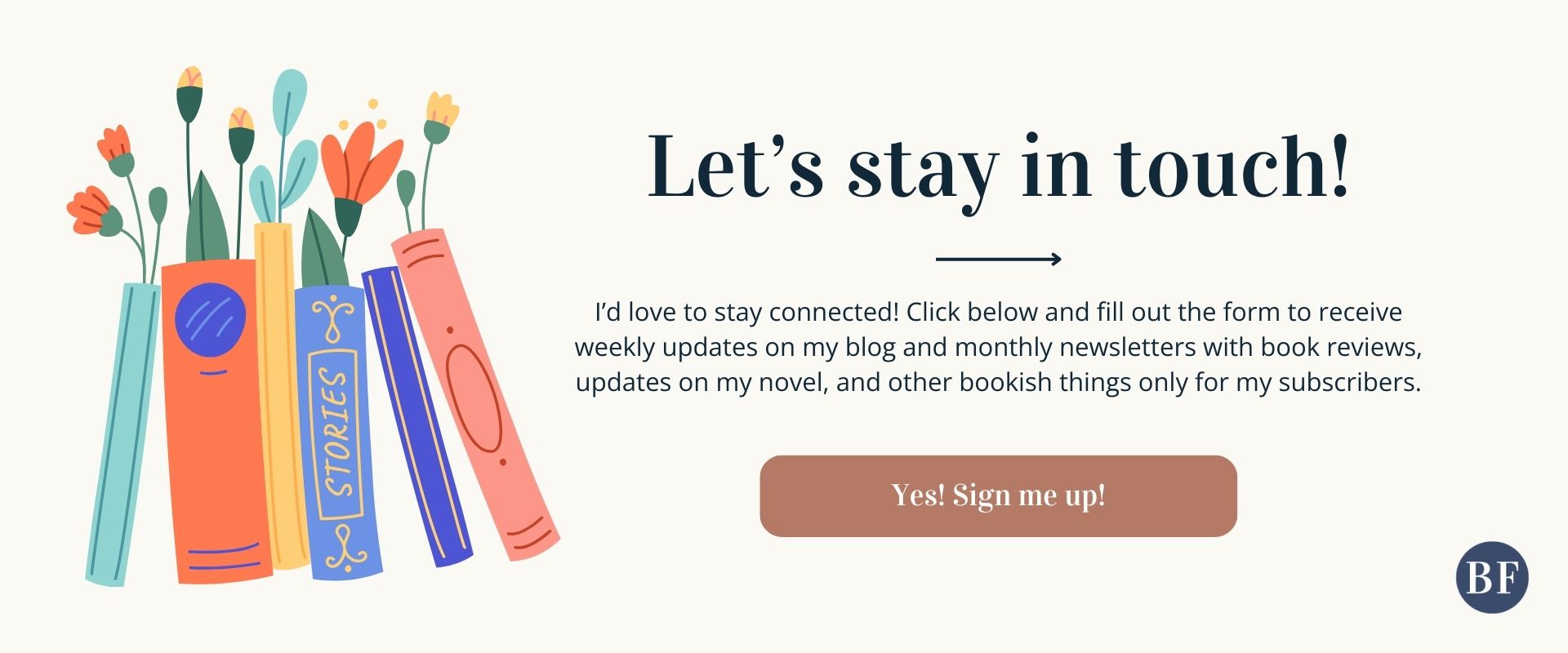I love poetry. As a literature student and English teacher, I’ve always loved the beauty of a well-crafted poem. Lately, though, I’ve noticed I haven’t been reading as many poems as I used to. I’d like to change that! In this post, I share why we should read poetry–from slowing down and stretching our brain muscles to rediscovering the beauty of everyday moments. Whether you’re a life-long poetry reader or a curious newcomer, I hope this post inspires you to pick up a poem today.
I have a friend who writes lovely faith-filled poetry, and when she brings a poem into our writing workshop, I am reminded of how much I miss reading poetry. I used to read poems often as a literature student and then as a teacher. But when I stopped teaching, I didn’t have a reason to read poetry. So I didn’t.
But why did I need a reason to read poetry? It’s like needing a reason to watch the sun set over the lake or listen to Yo-Yo-Ma play Cello Suite No. 1 in G Major or sink my teeth into chewy sourdough bread hot from the oven. These are slow joys in my life that require a little work.
I have to get myself to the lake to watch the sun set, and I have to locate the album or the CD or the track on my music app to listen to the stunning cellist. (I have to cheer on my husband as he kneads the bread, and then I have to wait for it to rise and fall and rise again and bake.)
Yet it’s worth the work and the patience for lots of reasons.
Poetry is not the beach read you just can’t put down (those have their own merits). It’s not the fast-paced tv show you just can’t wait to return to week after week. Poetry takes a little more work and a little more time. But there are so many good reasons to read it.
Disclosure: This post contains affiliate links. If you make a purchase from a link, I may earn a small commission—at no extra cost to you. As an Amazon Associate I earn from qualifying purchases.
Why We Should Read Poetry
To slow down.
You can’t read a poem fast. It’s not a speed-reading activity at all. Sometimes it feels frustrating to me because I tend to skim as I read things. But you can’t skim a poem. It doesn’t work. Unless you choose an epic poem like Beowulf or The Odyssey, you can read many poems in ten minutes or less. But then there is the wrestling and the meditating and the image that lingers with you for hours or days. It’s worth it.
To stretch your brain muscle.
Yes, sometimes reading a poem is harder than reading an Instagram post. But that’s a good thing to do every once in a while. Especially if you fill your days with social media, streaming videos, YouTube, and emails.
Poetry is sometimes ambiguous, dancing with words.
Poetry often requires a dictionary. Sometimes you’ll scratch your head and think, “What does this mean?” Maybe you’ll want to take a deep dive into various interpretations or analyses of the poem. Or not.
To witness and appreciate the creation of creative minds.
Reading a poem is a little like going to an art show, especially if you are neither a poet nor an artist. It may feel new or unfamiliar. For example, there’s no punctuation in some poems. Many poems don’t have end rhymes or fall into a predictable rhythm. These are known as free verse poetry, just like it sounds.
But then there are highly structured poems like sonnets, villanelles, and haikus, and I’m always amazed at the beauty of language and the craft of the poets when I read those.
I’m also thankful for the creative poets who have come before us like Shakespeare, Angelou, Dickinson, Oliver, Frost, and so many others I cannot begin to name. And I’m thankful for creative poets who write today like Luci Shaw, Wendell Berry, Scott Cairns. Be prepared to stretch your brain muscle with some of these.
To see something afresh.
I take so much for granted, and sometimes it’s a poem that reminds me of the simplest blessings. Read William Carlos Williams poem about plums to witness this before you gobble down your next bowl of fruit.
How does poetry do this? Ah, so many ways. Good poets use images, metaphor, word-dances, rhythms, sounds, and more to create just the right effect. Poetry is lean and only the perfect word will make the cut. Even if the poem is short, the image it creates in your mind – or the memory it provokes! – may be powerful, beautiful, or both or something else entirely.
“Poetry lifts the veil from the hidden beauty of the world, and makes familiar objects be as if they were not familiar.”
Percy Byshhe Shelley
Where to start?
If you want to try to read poetry, and you haven’t read any since your high school days, then here are a few tips and book recommendations.
- If you are new to poetry reading, then just read a poem like you’d read anything else. Begin at the beginning. Read the title first.
- Now read the poem. Resist the urge to figure it all out.
- Set it aside for an hour or a day or a week.
- Return to read the poem again.
- Read it aloud. Poetry is often about the sounds of the words.
- Ask a few questions: What words jump out? Images? Why did the poet write this? What makes this poem memorable?
- Save the poems you like by placing a sticky note on the page. Return to them again.
- If you want a deeper dive, spend some time reading various analyses of the poem, if available. Online searches can be helpful.
Here’s a good resource if you want to learn from an expert how to read poetry.
What to choose?
A good way to begin is to go to your local library and hunt for poetry collections. Ask the librarian for ideas. Or if you have a particular poet in mind, find one of their poetry collections. Grab a chair and find a short one to read right there.
If you’re completely unsure of where to start, here are a few of my favorite resources:

Continue: Poems and Prayers of Hope by Tanner Olson
A wonderful beginning is this collection of faith-filled poems by Tanner Olsen, a poet who puts simple words together to create profound images, stories, and prayers. His work is free verse, lyrical, and lovely. You will find yourself highlighting and bookmarking poems to read again and again. This book sits on my nightstand for quiet times. My favorites include “For When You Forget” and “Make a Way.”

Garrison Keillor’s Good Poems
If you want to invest in a poetry book, Garrison Keillor’s Good Poems has been on my bookshelf for years. He has an eclectic collection of poems that came from his public radio show “The Writer’s Almanac” where he began each episode with a poetry reading. The inside cover says this collection is “for anybody who loves poetry whether they know it or not.” Can’t argue with that.

Poems to Learn by Heart by Caroline Kennedy
Poems to Learn by Heart is a collection of 100 poems with a variety of themes from family and sports to love and courage. The accompanying watercolor drawings are beautiful. The collection is good for all ages and would make a lovely addition to any family or teacher’s library.

The Poetry Foundation
The Poetry Foundation is an excellent online resource where you can search for many poets or poems and find hundreds of other helpful resources.
The Daily Poem Podcast
The Daily Poem podcast is a wonderful and easy-access resource if you want more poetry in your day. The host reads the poem, shares some insights, and then reads it once more. Most episodes are only 5-6 minutes. The poems are thoughtfully selected from classics to contemporary. For example, they read J.R.R. Tolkien’s “Noel” on Christmas Eve. You can listen to one poem every other day unless you subscribe for daily poems. (It used to be daily without charge, but I understand how much time this takes!)
The Best Poetry of All
Ultimately, the most beautiful poems are in the Bible. You’ll probably recognize the Book of Psalms as a collection of 150 poems or songs which range from praise to laments. Other books often classified as poetry include Job, Proverbs, Ecclesiastes, and the Song of Solomon.
You can experience the Bible’s poetry on a daily basis with one of many faithful practices involving these books. For example, the book of Proverbs has exactly 31 chapters–you can read one chapter each day for a month. Or read through the Psalms, one or two per day. You can do this on your own or use a reading plan. Both of these practices–or any reading plan– make it easy to soak in God’s Word on a regular basis, especially if you use one of the many Bible apps available.
Why are these the best poetry of all? They point you to Christ, the Author and Perfecter of our faith (Hebrews 12:2).
Pin this post for later!




